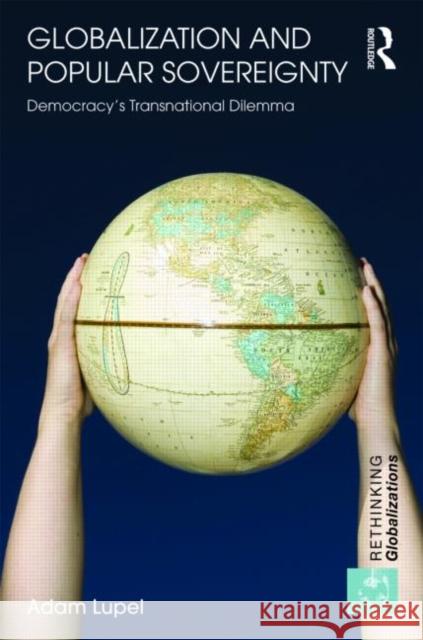Globalization and Popular Sovereignty: Democracy's Transnational Dilemma » książka
Globalization and Popular Sovereignty: Democracy's Transnational Dilemma
ISBN-13: 9780415777445 / Angielski / Twarda / 2009 / 198 str.
Globalization and Popular Sovereignty: Democracy's Transnational Dilemma
ISBN-13: 9780415777445 / Angielski / Twarda / 2009 / 198 str.
(netto: 695,40 VAT: 5%)
Najniższa cena z 30 dni: 705,23 zł
ok. 22 dni roboczych
Bez gwarancji dostawy przed świętami
Darmowa dostawa!
We are living in a time of global transformation in which new political arrangements are being formed and old political arrangements now seem insufficient. In this context, alternative forms of authority are gaining strength, putting pressure on the normative currency of democratic politics; the central categories of democratic theory need to be re-examined or they risk becoming co-opted and diminished. Indeed, we must ask, how can the rule of the people be maintained in a transnational age? This volume analyzes the impact of globalization on the concept of popular sovereignty and rethinks it for the transnational domain. It explores how popular sovereignty has historically determined the form of democratic citizenship and how democratic citizenship and legitimacy can be conceived in the transnational sphere in the absence of a global sovereign order. By inquiring into the new global context of popular sovereignty, the book seeks to better understand the emerging structures of global governance and their potential for democratic legitimacy. Lupel argues:
- That the challenges of globalization necessitate a rethinking of the concept of popular sovereignty beyond the domain of the nation-state
- That such a rethinking reveals a tension between the particularism of democratic legitimacy and the universalism of cosmopolitan politics
- Thus critical attention to the constitutive processes of global governance must become an integral part of democratic theory in the context of globalization; and a principle of transnational popular sovereignty provides the best resources for this purpose.
This volume analyzes the impact of globalization on the concept of popular sovereignty and rethinks it for the transnational domain. It explores how popular sovereignty has historically determined the form of democratic citizenship and how democratic citizenship and legitimacy can be conceived in the transnational sphere in the absence of a global sovereign order. By inquiring into the new global context of popular sovereignty, the book seeks to better understand the emerging structures of global governance and their potential for democratic legitimacy. Lupel argues:
- That the challenges of globalization necessitate a rethinking of the concept of popular sovereignty beyond the domain of the nation-state
- That such a rethinking reveals a tension between the particularism of democratic legitimacy and the universalism of cosmopolitan politics
- Critical attention to the constitutive processes of global governance must become an integral part of democratic theory in the context of globalization; and a transnational model of popular sovereignty provides the best resources for this purpose.
This book will be of interest to students and scholars of globalization, democratic theory and international relations theory.











